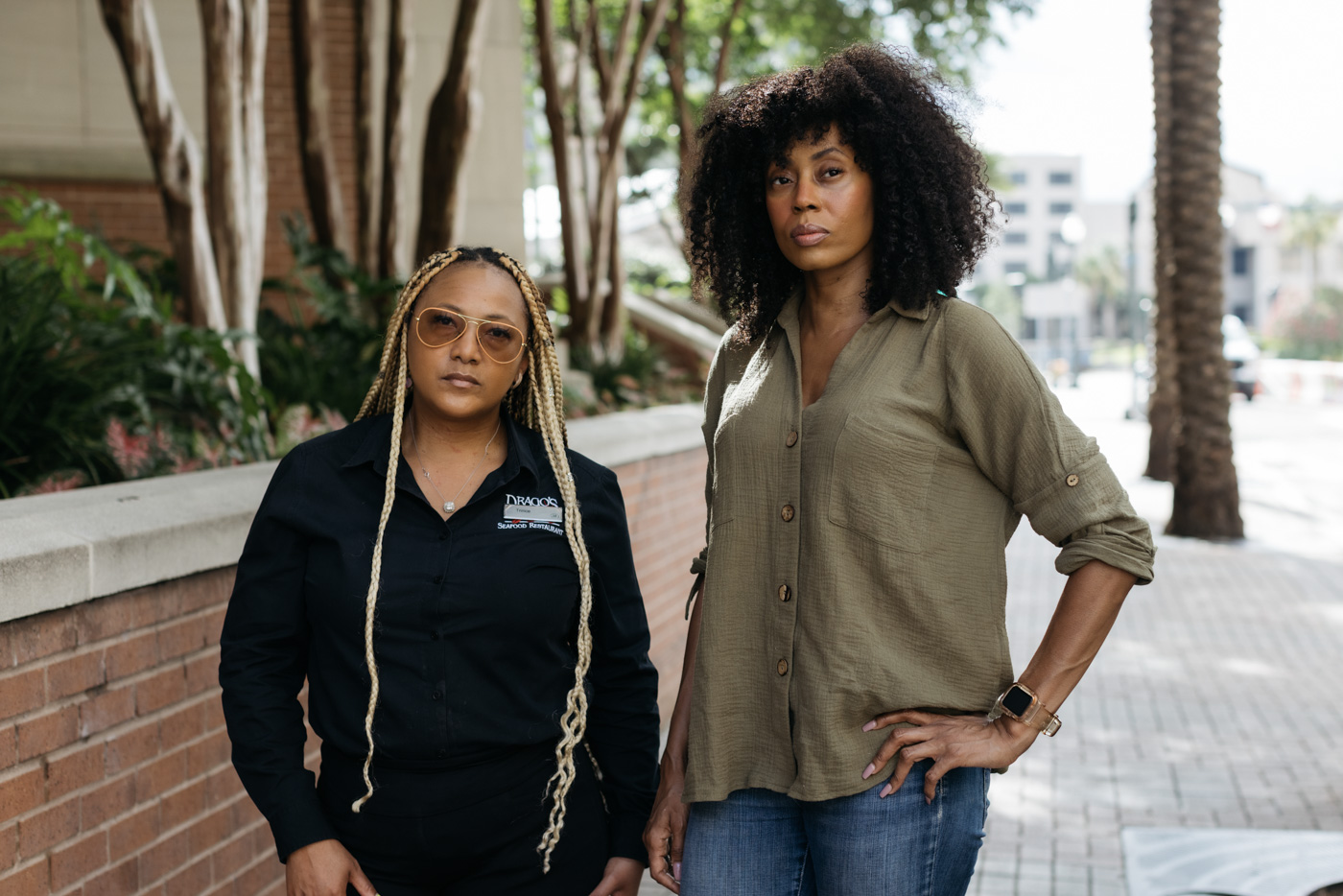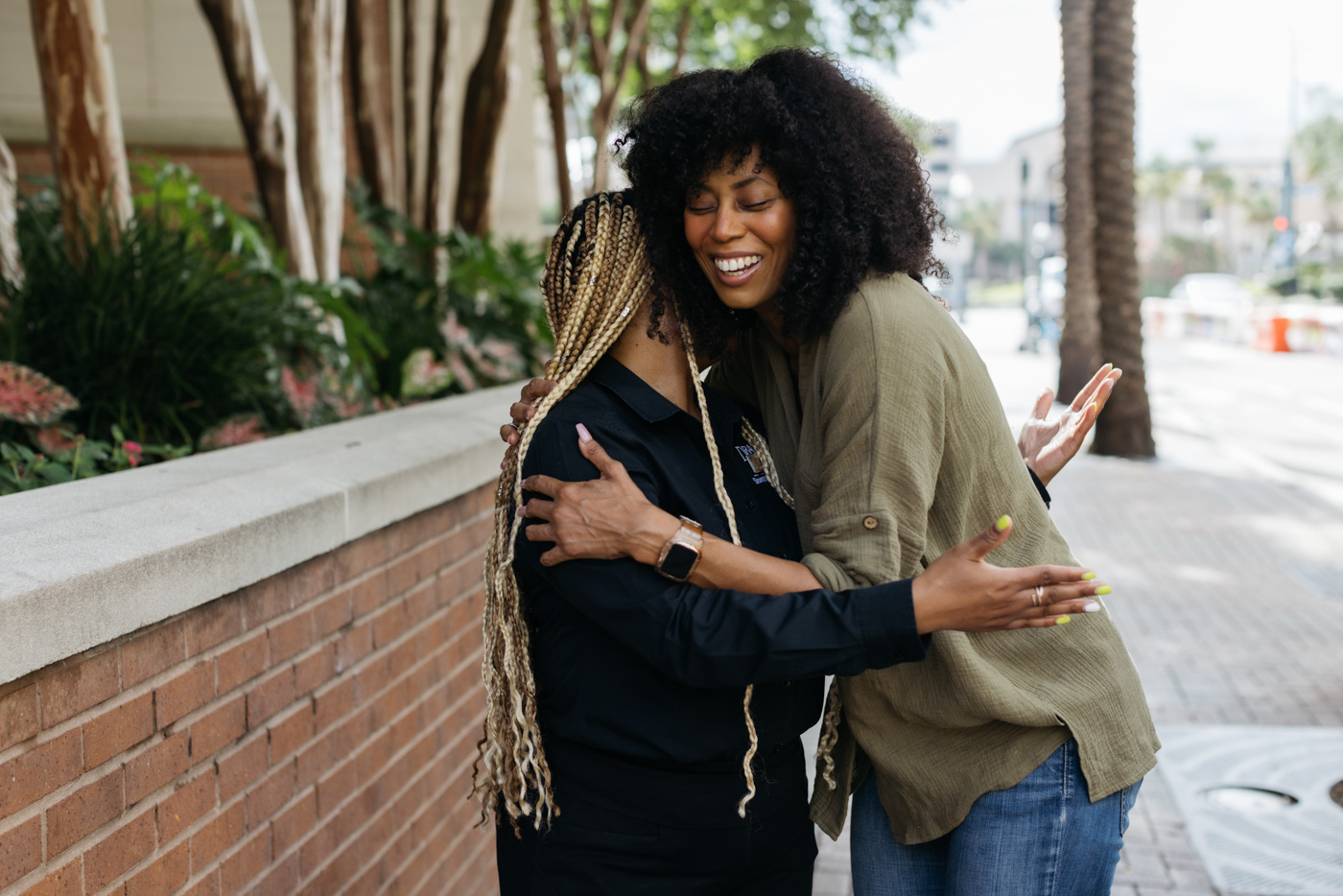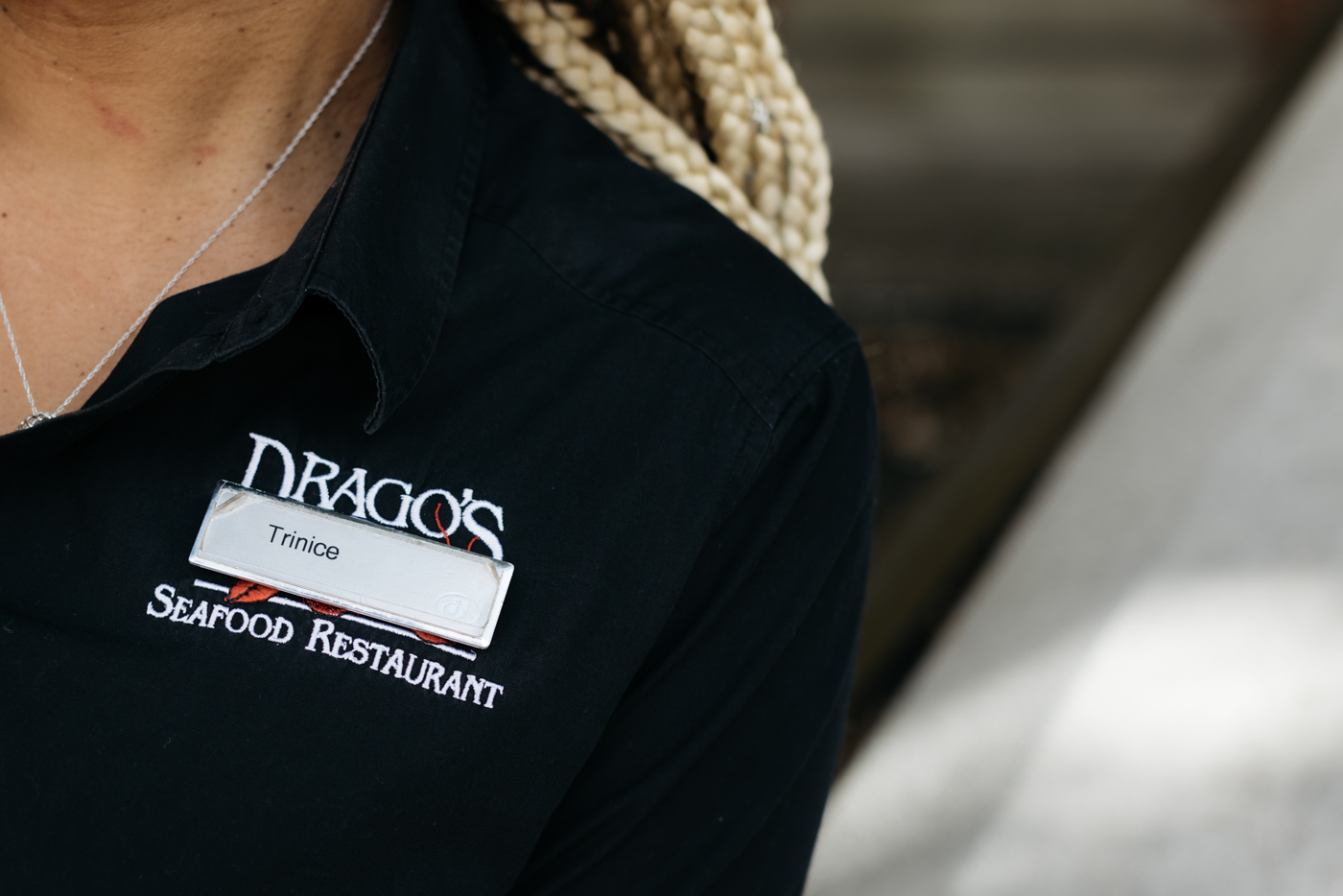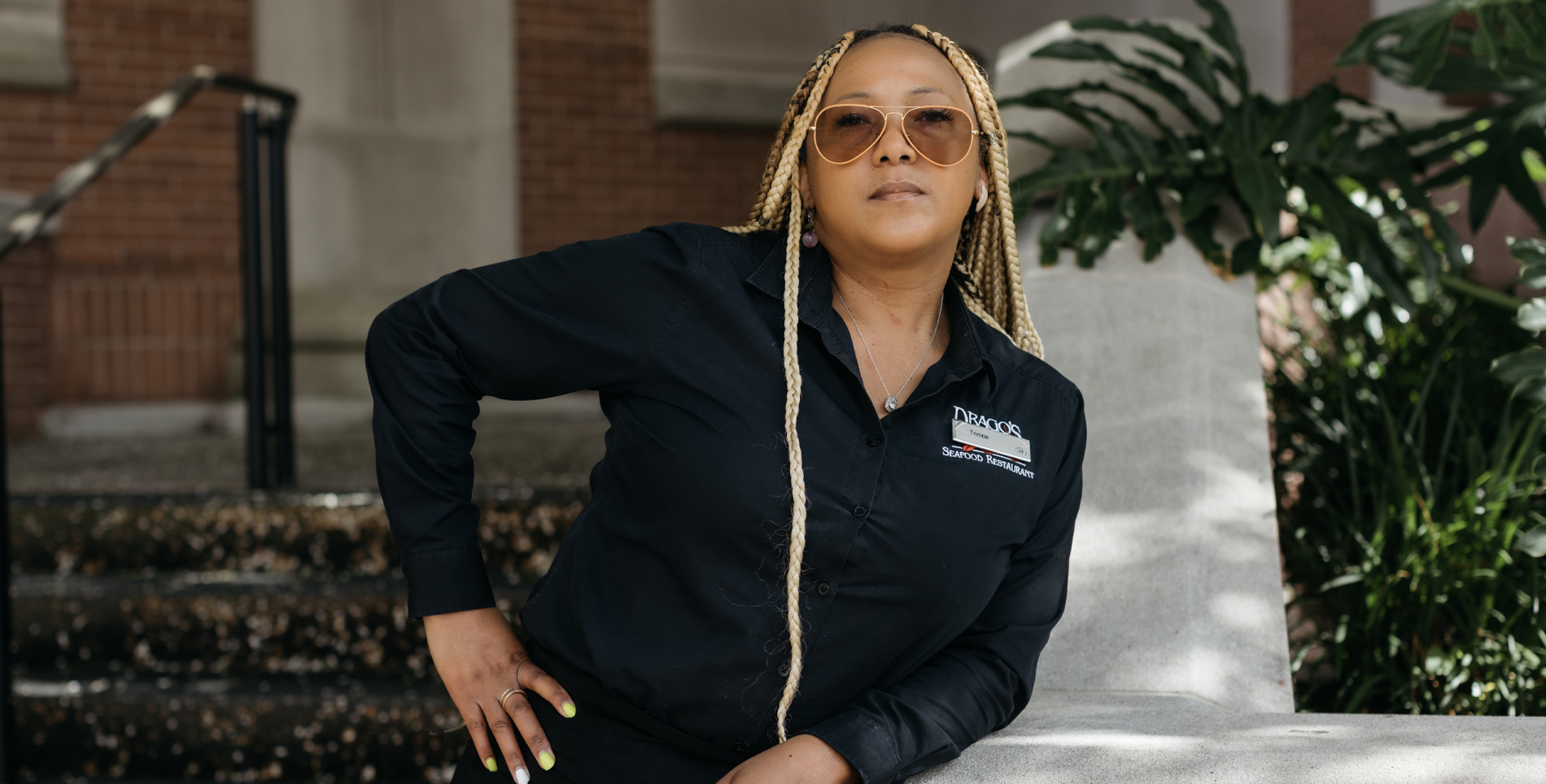Editor’s Note: This story is published in The What We Carry Issue of Life & Thyme Post, our exclusive newspaper for Life & Thyme members. Get your copy.
Miss Leah Chase knew well that cooking is a labor of love. Perhaps New Orleans’ most iconic chef, the “Queen of Creole Cuisine” once said of her craft, “You have to be in love with that pot. You have to put all your love in that pot.” She knew what it meant to feed another person. “I love serving people,” she says in the same ubiquitous quote.
Providing nourishment is an act of generosity, service and care. But, of course, it is also labor. No one is meant to give endlessly; when someone takes advantage of the act of giving, appreciation becomes exploitation. Still, when the labors associated with food are boiled down to their nature, that labor can be life-giving.
In the American restaurant industry, built on highly precarious jobs without living wages or health care, a respect for labor is scarcely found. Despite a nationally recognized food scene and well-funded tourism industry, New Orleans remains one of the poorest cities in the country. Predominantly low-income Black workers and disproportionate numbers of Hispanic workers staff New Orleans hotels and restaurants. According to a 2018 report by the Southeast Louisiana-based Data Center, only 17% of jobs in the hospitality industry are “good jobs” that pay a living wage or provide pathways to jobs in other occupations that provide a living wage.
Yet some of the most significant developments in American food workers’ movements in recent years have come out of New Orleans, where anti-worker policies are being challenged. Racial capitalism has devastated communities and foodways in this city, yet workers have continued to fight for their rights. Primarily beginning after the 2008 recession, a wave of big hotels in New Orleans unionized with Unite Here, one of the largest dining, hospitality and food service workers’ unions in the country. Now, six of the largest hospitality and food employers have unions, meaning over 1,000 workers unionized their workplaces.
All this was achieved in Louisiana, a right-to-work state, where fewer than 5% of workers are unionized. The growing labor movement in New Orleans offers vital lessons. Could unions be a potential remedy to the legacies of slavery, exploitation, and disaster capitalism that have devastated this place? Perhaps food workers’ movements in the South can help remake the way we experience food, culture and history.
___


The past few years have not been easy for New Orleans workers. The pandemic, as well as Hurricane Ida in the fall of 2021, presented crises the city is still recovering from. High rates of Covid deaths, in a state of chronically uninsured workers in high-risk jobs, were further exacerbated by waves of tourism. In March of 2020, Louisiana had the lowest unemployment benefits in the country at an average of $216 per week, which is only 23% of what the average worker in the state earns, according to the U.S. Department of Labor. Only 11% of workers actually received benefits due to restrictions on who qualified. And when Hurricane Ida flooded Southeast Louisiana—the worst storm since 1965 for the bayou and River Parishes—it left many without power for two weeks, with the heat taking the lives of at least 10.
Workers say the state’s response to the pandemic was so ineffectual that it was activating for some. Longtime service industry folks were fed up, according to Gabby Bolden-Shaw, a community organizer at Step Up Louisiana who was formerly a shop steward—an employee elected to represent her fellow workers in dealings with management—in her union at the New Orleans Ernest N. Morial Convention Center.
“When you work somewhere for years and years and you put your time in, then when something like a pandemic happens, you have to file for unemployment and you’re only worth $10? That’s a slap,” she says. “It woke a lot of people up.” With their unions and alongside Step Up Louisiana, workers protested in 2020 and 2021 for the extension of the federal $600 unemployment benefit and to increase maximum benefits statewide.
The Loews Hotel in Downtown New Orleans, Harrah’s Hotel & Casino, the Hilton Riverside, the Convention Center, the city’s airport concessions, and a Westbank school’s cafeteria workers are all unionized with Unite Here Local 23, a local that includes workplaces from Texas to Washington, D.C. More than 1,000 hospitality workers in New Orleans have achieved middle-class pay standards through unionization. President of Local 23, Marlene Patrick-Cooper, brought lessons from her time with the Culinary Union in Las Vegas—another city dominated by an exploitative hospitality industry—where virtually the entire casino industry is now unionized. Starting in 2004 with the unionization of the Loews Hotel, and in the two decades since, workers have been organizing in an industry where it is notoriously tough to do so.
Since 2020, political developments have shaken up food workers nationwide, from frustrations with being called “essential workers” yet rarely receiving hazard pay or increased benefits, to the subsequent Great Resignation. In May 2022, Velveteen Lounge on Bayou Road opened as a worker co-operative, completely owned and managed by employees. “The profits of the business go back to the people who are working, rather than a hierarchy of ownership where one person profits,” Brendan Gordon, one of a trio opening the restaurant, told Mid-City Messenger in June. And this June, the Starbucks location on Maple Street in East Carrollton was the first location in Louisiana to unionize.

“The union has been nothing but a blessing,” says Trinice Dyer, a shop steward at the Hilton in Downtown New Orleans. Dyer has 14 years under her belt as a server, and was able to work from home for the union after the pandemic hit, but many of her coworkers weren’t so lucky. Local 23 organizers point to examples of how their union has helped them in their battles for recall rights to rehire older workers who were let go; how they used union infrastructure for phone banks to check in on people during Hurricane Ida; an increased sense of job security; and strong safety protocols during Covid.
“I firmly believe if it weren’t for the union, it would’ve been a very different situation,” says Kamille McCuin, a shop steward at Harrah’s New Orleans Hotel & Casino, about her job being protected. McCuin has been a cocktail server at the casino for six years. At Harrah’s, Local 23 also negotiated recall rights and pay raises for workers returning. Since joining her union, McCuin describes feeling empowered in her front-of-house role. “If you have the right server and understand the value that they add,” she says, “we’re indispensable.”
___
Historically, many elements of what we call Southern food, or even classic American food, were specifically created by Black people. In Creole cuisine, black-eyed peas, okra, eggplant and rice are just a few ingredients that find their origin in West Africa, brought to this continent by enslaved people. In the centuries since, Black people have fought for their right to get back to the abundance associated with this very food.
Racial capitalism and the afterlife of slavery continue to alienate New Orleans food workers from their labor and deny them its fruits. As writers like Michael W. Twitty and Jessica B. Harris have delineated, the appropriation of Black culture and whitewashing of African American food is part and parcel of this process.
“If you Google ‘New Orleans chef,’ you see a row of white faces,” says Lauren Darnell, executive director of the Made in New Orleans Foundation (MiNO). At MiNO, Darnell works to increase funding and structural support for BIPOC chefs in the city to advance their careers.
“You see the lack of diversity and equity in a city whose rich culinary history is based on African American foodways, West Africa, the Caribbean. It’s hard to name a Black chef from New Orleans besides, God rest her soul, Miss Leah Chase. But we shouldn’t just have one,” she says. “It’s crazy, and if you walk into any kitchen, most of the people cooking are Black. Think of all these people who are just unknown.”
After Hurricane Katrina, “What we saw was a remaking of the city that in no way privileged low-income POC perspectives or workers’ rights,” says Caroline Keegan, a geography scholar who conducted fieldwork with New Orleans workers in Unite Here when they organized as Local 2262. She points to the collapse of the Hard Rock Hotel in October 2019, when three workers doing construction on the building in Downtown New Orleans died, and dozens of primarily undocumented workers were injured.
“We’ve seen those sacrifices play out over and over in more and less spectacular fashion,” Keegan says. It is not possible to count just how many cooks and food workers died from Covid or working through illness since 2020, and well before. On the push to reopen tourism and get the service industry running again at any cost, Keegan has no illusions: “Do I think people will be sacrificed to this? Yes.”
With all these realities laid bare, a growing labor movement and a collaborative local organizing culture has started the process of effecting structural change. Organizers in New Orleans describe a highly coalitional grassroots network, in which tenant and community activists end up supporting tourism and hospitality workers by virtue of the industry’s ubiquity locally. Groups like Take ‘Em Down NOLA have fought to remove Confederate monuments while simultaneously building support systems for local workers, tying the history of white supremacy to ongoing labor exploitation.
Scholar Lynnell Thomas, who grew up in New Orleans and considers herself a part of the post-Katrina diaspora, says New Orleans’ vibrant cultural arts scene has filled social and political gaps throughout the city’s history. In the Flambeaux Strike of 1946, torch carriers striked for higher wages during Mardi Gras. The Young Men Olympian Jr. Benevolent Association, a Black mutual aid organization founded in 1884, facilitated burial rites, parades and distribution of resources to their communities. Food, music, and art animate New Orleans, and respect for the work that it takes to create these things are well-established in residents, even when the powers that be don’t show this same respect.
New unions, which build more robust democratic participation and grassroots infrastructure generally, have activated workers and families, and have been buoyed by the changing national conversation about essential workers’ rights. Union approval ratings are high at two-thirds of Americans—the highest they have been since 1965.
Perhaps, under these emerging conditions, workers will find new ways to live without fear and shape their own lives. In New Orleans, a majority Black city at the nexus of the Deep South and the Caribbean, the significance of labor remaking its relationship with food, craft and the land speaks for itself.
And for all American restaurant workers, demanding dignity from a food system built to deny it is a revolutionary project that can transform how we relate, consume and live together.







Our comments section is for members only.
Join today to gain exclusive access.